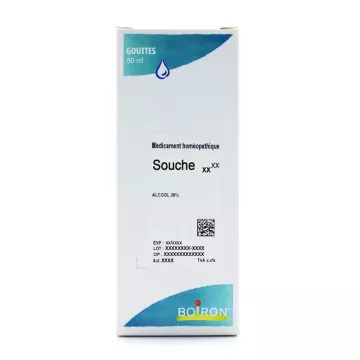



What is inflammation?
Inflammation is the immune system's natural response to aggression. It can be triggered by a variety of factors, such as infection, injury or autoimmune disease. The inflammatory process often manifests itself through signs such as redness, heat, swelling and pain.
What are the main causes of inflammation?
Inflammation has many causes. It can result from infection by bacteria, viruses or fungi. Physical irritants such as cuts, scrapes or foreign bodies can also trigger an inflammatory response.Inflammation can also be a reaction to chemical agents, or the result of chronic diseases such as rheumatoid arthritis or Crohn's disease.
How to recognize the symptoms of inflammation?
Symptoms ofinflammation vary according to cause and location, but classic signs include:
What treatments are available for inflammation?
Treatment ofinflammation depends on its cause. Non-steroidal anti-inflammatory drugs (NSAIDs), such as ibuprofen, are often used to reduce pain and swelling. Corticosteroids may also be prescribed for more severe cases. In addition to medication, self-care methods such as resting, applying ice and keeping the affected area elevated can help reduce symptoms. For inflammation caused by infection, antibiotics or other specific treatments may be required.
What's the difference between acute and chronic inflammation?
Acuteinflammation is a rapid reaction of the immune system that occurs shortly after an injury or infection. It is generally short-lived and resolved once the threat has been eliminated. Chronicinflammation, on the other hand, can last for months or even years. It may be the result of a poorly regulated immune response or continuous exposure to an irritant. This form ofinflammation is often associated with chronic diseases such as diabetes, heart disease and certain cancers.
How can inflammation be prevented?
Preventinginflammation involves several aspects of lifestyle:
What role does diet play in managing inflammation?
Diet plays a crucial role in modulatinginflammation. Certain foods, such as antioxidant-rich fruit and vegetables, oily fish sources of omega-3, and nuts, have anti-inflammatory properties. Conversely, high consumption of sugar, saturated fats and processed foods can exacerbateinflammation. We recommend adopting a Mediterranean or similar diet, known for its beneficial effects on reducinginflammation and preventing chronic disease.
Are there any tests to diagnose inflammation?
Yes, several tests can help diagnoseinflammation. The most common test is the measurement of C-reactive protein (CRP) in the blood, which increases in response toinflammation. Other indicators include the erythrocyte sedimentation rate (ESR), which can also suggest the presence of active inflammation. These tests do not specify the cause ofinflammation, but they are useful for detecting and monitoringinflammation in the body.
What are the long-term consequences of chronic inflammation?
Chronicinflammation is associated with many serious diseases. It can play a role in the development of heart disease, type 2 diabetes, obesity, arthritis, neurodegenerative diseases such as Alzheimer's, and certain types of cancer. Managing chronicinflammation through lifestyle interventions, and when necessary, medical treatment, is key to reducing the risk of these long-term complications.
How does exercise influence inflammation?
Exercise has beneficial effects oninflammation. It can help reduce levels of systemicinflammation. Regular exercise stimulates the body's production of anti-inflammatory molecules and helps regulate weight, which can also reduceinflammation. However, it's important to note that intense, prolonged exercise without adequate recovery can cause temporary inflammation.
What are the natural treatments for inflammation?
In addition to medication, there are several natural treatments and home remedies to manageinflammation. Supplements such as turmeric, ginger and fish oil are renowned for their anti-inflammatory properties. Practices such as acupuncture, yoga and meditation can also help reduceinflammation. It is advisable to consult a healthcare professional before starting any natural treatment, especially in the case of pre-existing medical conditions.